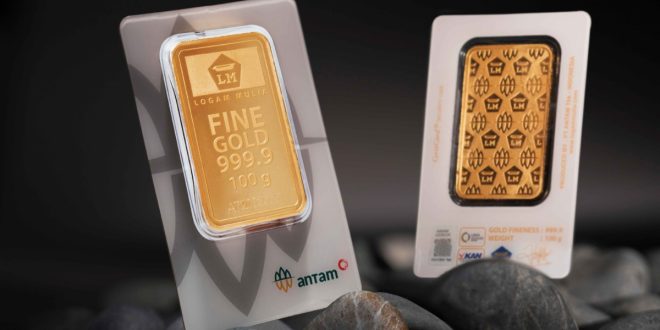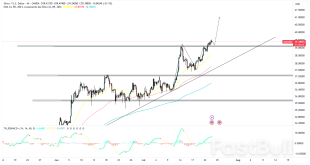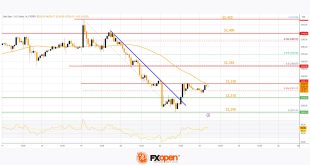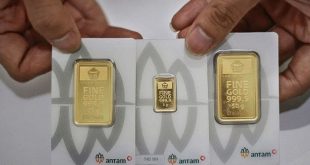As tensions between Iran and the US continue to simmer, anxieties ripple across global markets, and the price of gold, often seen as a safe-haven asset, inevitably comes under scrutiny. You’ve probably heard it before: when the world gets shaky, people flock to gold. But is it really that simple? This article will explore the historical relationship between geopolitical instability in the Middle East and gold prices, analyze the current factors driving the Iran-US conflict, and assess the potential impact of further escalation on the precious metal’s value. Finally, we will consider alternative investment strategies in light of these uncertainties. So, buckle up; let’s dive in and see if your grandma’s advice about gold still holds water.
Historical Correlation: Middle East Conflict and Gold
Gold as a Safe Haven Asset
Gold has this reputation, right? A “safe haven.” But what does that even mean? Well, in times of economic or political turmoil, investors often seek assets that are expected to retain or increase their value. Gold, with its limited supply and intrinsic value, has historically fit the bill. It’s kinda like that one reliable friend who always has your back – at least, that’s the theory. The idea is that even if currencies crash or stock markets plummet, gold will hold its own, providing a safety net for your investments. Sounds good, doesn’t it? But is it always true? That’s the million-dollar question, or should I say, the million-ounce question.
Past Instances of Geopolitical Impact on Gold Prices
Looking back, there are definitely examples where geopolitical events in the Middle East sent gold prices soaring. Think about the Yom Kippur War in the ’70s or the Gulf Wars. Each time, uncertainty spiked, and so did the demand for gold. During these periods, it wasn’t just about investment; it was about fear. People were genuinely worried, and gold offered a tangible sense of security. But, and this is a big but, past performance isn’t a guarantee of future results. Remember that fine print everyone always ignores? So, while history gives us clues, it doesn’t give us a crystal ball. Maybe I should invest in one of those instead? Kidding… mostly.
The Current Iran-US Conflict: Key Drivers
Nuclear Program Disputes
Okay, so what’s cooking between Iran and the US right now? A big part of it revolves around Iran’s nuclear program. The US and other countries worry that Iran is developing nuclear weapons, while Iran maintains its program is for peaceful purposes. This disagreement has led to sanctions, diplomatic standoffs, and, frankly, a lot of mistrust. It’s like a really tense game of poker where no one is showing their cards. And when there’s that much uncertainty, markets get jittery, which, as we’ve discussed, can impact the price of gold.
Proxy Wars and Regional Influence
It’s not just about nukes either. Iran and the US are also involved in what you might call “proxy wars.” Basically, they support different sides in conflicts across the Middle East, from Yemen to Syria. It’s a complex web of alliances and rivalries, and it creates a constant state of tension. This regional power struggle adds another layer of uncertainty, further fueling anxieties among investors. Honestly, trying to untangle it all can feel like trying to knit spaghetti. And who has time for that?
Economic Sanctions and Their Implications
Then there are the sanctions. The US has imposed a series of economic sanctions on Iran, aiming to curb its nuclear program and regional activities. These sanctions have crippled the Iranian economy, leading to further instability. And what happens when an economy is on the ropes? People get nervous, and they start looking for safe places to park their money. You guessed it: gold is often on that list. But sanctions are a double-edged sword. They can create uncertainty, but they can also backfire, leading to unintended consequences. It’s a delicate balancing act, to say the least.
Potential Impact of Escalation on Gold Prices
Immediate Price Surges and Volatility
If the Iran-US conflict escalates, what can you expect for gold? Well, in the immediate aftermath, you’d likely see a price surge. Fear drives the market, and when things get scary, people buy gold. But these surges can be fleeting. The market is a fickle beast, and what goes up can just as easily come down. So, don’t expect to get rich overnight. Or maybe you will. Who knows? That’s the thrill of investing, right?
Long-Term Trends: Sustained Increase or Correction?
What about the long term? Will gold maintain its gains, or will it eventually correct? That’s a much tougher question to answer. It depends on a whole host of factors, including the duration and intensity of the conflict, the overall health of the global economy, and the actions of central banks. Some analysts believe that a prolonged conflict could lead to a sustained increase in gold prices, while others argue that the market will eventually stabilize and prices will fall back down. Basically, it’s a coin flip. Your guess is as good as mine.
Expert Opinions and Market Forecasts
Speaking of guesses, what are the experts saying? You’ll find opinions all over the map. Some are predicting record highs for gold, while others are warning of a potential bubble. The truth is, no one really knows for sure. Market forecasts are often wrong, and even the smartest analysts can be caught off guard by unexpected events. So, take everything you hear with a grain of salt, and do your own research. In the end, the only person you can truly trust is yourself. Or maybe your financial advisor. But definitely not that guy on the internet who keeps promising you guaranteed returns. Run away from that guy. Run far, far away.
Alternative Investments in Times of Uncertainty
Diversification Strategies Beyond Gold
Okay, so gold might be a good hedge against geopolitical risk, but it’s not the only option. Diversification is key. Don’t put all your eggs in one golden basket. Consider spreading your investments across different asset classes, such as stocks, bonds, real estate, and other commodities. It’s like building a well-rounded team. You don’t want to rely on just one star player. You need a solid group that can work together.
Analyzing Other Precious Metals and Commodities
And while we’re talking about commodities, don’t forget about silver, platinum, and other precious metals. They can also act as safe havens in times of uncertainty. Oil is another one to watch, especially given the Middle East’s role in global energy production. But remember, each commodity has its own unique characteristics and risk factors. So, do your homework before you dive in. It’s like learning a new language. You need to understand the grammar and vocabulary before you can start speaking fluently.
The Role of Equities and Bonds in a Geopolitically Sensitive Market
What about stocks and bonds? Well, in a geopolitically sensitive market, these assets can be more volatile. But they can also offer higher potential returns. It really depends on your risk tolerance and investment goals. If you’re a long-term investor, you might be willing to ride out the ups and downs. But if you’re more risk-averse, you might prefer to stick with safer options. There’s no right or wrong answer. It’s all about finding what works for you. Like choosing the right flavor of ice cream. Some people like chocolate, some like vanilla, and some like that weird rocky road stuff. To each their own.
So, is the price of gold affected by the escalating conflict between Iran and the US? The short answer is likely yes, at least in the short term. But as you can see, it’s a complex picture with many moving parts. Investing in times of uncertainty can be nerve-wracking, but with careful planning and a diversified portfolio, you can weather the storm. Maybe it’s time to chat with a financial advisor – or at least do some serious thinking while sipping a calming cup of tea. Whatever you decide, remember to stay informed, stay rational, and don’t panic! And hey, if you have any thoughts or experiences on the subject, feel free to share. We’re all in this together, after all.
 seeme
seeme




